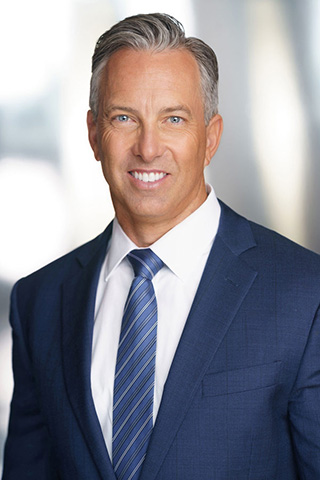If you need legal assistance, don’t wait – call Wilshire Law Firm at (213) 335-2402 to discuss your accident and let us help you chart a path to recovery.
Statistics on Motorcycle Accidents
In recent years, data from the National Highway Traffic Safety Administration (NHTSA) revealed that motorcyclists are 29 times more likely than car occupants to die in a crash and four times more likely to be injured.
Common Causes of Motorcycle Accidents
Motorcycle accidents often stem from several common causes:
- Driver Negligence: One of the leading causes of motorcycle accidents is the failure of other drivers to notice motorcyclists on the road. Distracted driving, failure to yield, and unsafe lane changes contribute to many motorcycle collisions.
- Environmental Factors: Weather conditions, poorly maintained roads, and hazardous road designs can also play a significant role in motorcycle accidents. Even a minor obstacle, such as a pothole, can lead to a devastating crash for a motorcyclist.
- Mechanical Failures: Faulty brakes, tire blowouts, or other mechanical issues can cause a rider to lose control, leading to serious accidents. Regular maintenance helps prevent these types of incidents.
Common Injuries in Motorcycle Accidents
Motorcycle accidents often result in severe injuries due to the lack of protection compared to other vehicles. Here are some of the most common injuries motorcyclists suffer in collisions:
Head and Brain Injuries
Traumatic brain injuries (TBIs) are one of the most devastating outcomes of motorcycle accidents. Even with a helmet, the impact of being thrown from a bike can cause significant brain trauma, leading to long-term cognitive impairments, emotional challenges, and, in severe cases, permanent disability.
Helmets reduce the risk of fatal brain injuries by about 37%, but they cannot prevent all head trauma.
Spinal Cord Injuries
Injuries to the spinal cord are particularly life-altering, often resulting in partial or complete paralysis. High-impact collisions may damage the spinal cord and cause these injuries, usually when they throw the rider from the motorcycle.
Fractures and Broken Bones
Motorcycle accidents frequently result in broken bones, especially in the arms, legs, and ribs. These injuries can occur when the collision throws the rider off the bike or when the bike falls onto the rider.
Fractures can require surgery, prolonged physical therapy, and can lead to permanent disabilities, impacting the rider’s ability to work and perform daily activities.
Road Rash and Soft Tissue Injuries
Road rash is a common injury in motorcycle accidents, occurring when the rider’s skin violently scrapes the pavement. This can range from minor scrapes to severe abrasions that damage deeper layers of skin, requiring extensive medical treatment and sometimes resulting in permanent scarring or nerve damage.
In addition to road rash, soft tissue injuries like torn ligaments and tendons are common, often leading to chronic pain and mobility issues.
Steps to Take After a Motorcycle Accident
Your actions following the accident can significantly impact your health, safety, and legal rights. If you’re reading this article, you’ve probably already done the obvious stuff, like seeking medical attention and exchanging information with other drivers. Here’s a step-by-step guide on what you should do once the dust has settled:
1. Contact a Motorcycle Accident Lawyer
Once you’ve attended to immediate concerns, contact a motorcycle accident lawyer. A legal professional can help you navigate the complexities of dealing with insurance companies, gathering additional evidence, and pursuing the compensation you deserve.
Early consultation with an attorney may help your case, especially if the accident involves severe injuries or if the insurance company disputes liability.
2. Notify Your Insurance Company
Report the accident to your insurance company as soon as possible. Provide them with the facts of the case without admitting fault or making speculative statements. Insurance companies may use your words against you to minimize your claim.
Stick to the basic facts, and let your attorney handle the negotiations. Your attorney can help guide you through this process to ensure that you don’t inadvertently jeopardize your claim.
3. Refrain from Posting on Social Media
After an accident, avoid posting details about the incident on social media. Insurance companies or opposing counsel may misconstrue even seemingly innocent posts and use them to dispute your claims.
4. Don’t Settle Quickly
Insurance companies may offer a quick settlement, but it’s often far less than what you deserve. Don’t accept any offers or sign any documents without first consulting your lawyer.
Determining Fault in Motorcycle Accidents
Determining fault in a motorcycle accident directly impacts the compensation you may receive. In California, the concept of negligence is key to establishing fault in these cases.
Understanding Negligence
Negligence occurs when a person fails to exercise reasonable care, leading to harm or injury to another. In the context of a motorcycle accident, this could involve a car driver who didn’t check their blind spot before changing lanes, or a motorcyclist who was speeding and lost control of their bike.
To prove negligence, your case must establish four elements:
Duty of Care: The defendant (the person you are claiming against) had a legal duty to act with care toward the plaintiff (you).
Breach of Duty: The defendant breached that duty by acting carelessly or recklessly.
Causation: The breach of duty directly caused the accident.
Damages: The plaintiff suffered actual harm or injury as a result of the accident.
Comparative Negligence in California
California follows a system of comparative negligence, which means that all parties involved in the accident can share fault. If both the motorcyclist and another driver were negligent, your compensation could decrease by your percentage of fault.
Common Evidence Used to Prove Negligence
- Police Reports: Official accident reports often contain the investigating officer’s opinion on who was at fault, based on evidence gathered at the scene.
- Witness Statements: Testimonies from people who saw the accident can provide unbiased accounts of what happened.
- Accident Scene Photos/Videos: Visual evidence from the scene, such as skid marks, vehicle damage, and road conditions, can help reconstruct the events leading up to the accident.
- Expert Testimony: Accident reconstruction experts can analyze the evidence to determine how the accident occurred and who was at fault.
Who Can Be Liable for the Accident?
Other Drivers: The most common liable party is another driver whose negligence – such as distracted driving, speeding, or failing to yield –caused the accident. Drivers must share the road responsibly with motorcyclists, and when they fail to do so, they can be held accountable.
Government Entities: If poor road conditions, such as potholes, inadequate signage, or faulty traffic signals, contributed to the accident, the government agency responsible for maintaining the road might be liable. These cases can be complex due to governmental immunity laws, but claims are possible under certain circumstances.
Manufacturers: If a defect in the motorcycle or any of its parts (e.g., brakes, tires) caused or worsened the accident, the manufacturer or distributor could be liable under California product liability laws. This includes both design and manufacturing defects that make the motorcycle unsafe for its intended use.
Potential Compensation After a Motorcycle Accident
After a motorcycle accident, victims may be entitled to various forms of compensation, depending on the circumstances of the accident and the extent of the injuries sustained.
1. Medical Expenses
Medical costs are often the most substantial expenses following a motorcycle accident.
Compensation can cover both immediate and future medical care, including:
- Emergency Room Visits: Costs associated with initial emergency treatment, such as ambulance services and hospital stays.
- Surgeries and Medical Procedures: Any surgeries required to treat injuries sustained in the accident.
- Rehabilitation and Therapy: Ongoing physical therapy, occupational therapy, and other forms of rehabilitation needed for recovery.
- Medication and Medical Equipment: Prescription medications, medical devices, and necessary equipment like wheelchairs or crutches.
- Long-Term Care: Compensation can cover the costs of in-home care or nursing facilities for severe injuries that require extended or lifelong care.
2. Lost Wages and Earning Capacity
If your injuries prevent you from working, you may be entitled to recover lost wages. This includes:
- Lost Income: Compensation for the income you missed during your recovery period.
- Diminished Earning Capacity: If your injuries lead to a long-term or permanent disability that affects your ability to work, you can seek compensation for the reduction in your earning potential.
3. Pain and Suffering
Pain and suffering damages aim to compensate for the physical pain and emotional distress caused by the accident. This can include:
- Physical Pain: Chronic pain, discomfort, and limitations resulting from your injuries.
- Emotional Distress: Anxiety, depression, PTSD, and other psychological effects of the accident.
- Loss of Enjoyment of Life: Compensation for your inability to enjoy activities and hobbies you once loved.
4. Property Damage
You can also seek compensation for the damage to your motorcycle and any other personal property affected by the accident. This includes the cost of repairs or the fair market value of your motorcycle if it is deemed a total loss.
5. Punitive Damages
In cases where the at-fault party’s behavior was particularly reckless or egregious, such as driving under the influence, the court may award punitive damages. These are meant to punish the wrongdoer and deter similar conduct in the future.
Why You Should Hire a Motorcycle Accident Attorney
1. Expertise in Motorcycle Accident Cases
Motorcycle accidents present unique challenges that require specialized legal knowledge.
Experienced attorneys understand the intricacies of motorcycle law, including state-specific regulations and the common biases motorcyclists may face in legal proceedings. They know how to counteract these biases and present a strong case that accurately represents the facts.
2. Navigating Insurance Claims
Insurance companies frequently try to minimize payouts, even when their policyholders are clearly at fault.
A lawyer can protect your interests by handling communications with insurance adjusters, ensuring they value your claim fairly. They can also negotiate settlements, aiming to secure the maximum compensation you deserve for your injuries and losses.
3. Gathering and Presenting Evidence
Proving fault and securing compensation requires comprehensive evidence, including accident reports, witness statements, medical records, and expert testimony.
A skilled attorney will know how to gather and present this evidence effectively to build a compelling case. They can also work with accident reconstruction experts to demonstrate how the accident occurred and who was at fault.
4. Contingency Fee Arrangements
Many personal injury lawyers, including those at Wilshire Law Firm, operate on a contingency fee basis. This means you don’t pay any upfront legal fees; instead, your lawyer only gets paid if they recover a settlement or verdict for you.
This arrangement allows you to access high-quality legal representation without worrying about the financial burden, making it easier to focus on your recovery.
5. Maximizing Compensation
Ultimately, the goal of legal representation is to ensure that you receive full and fair compensation for all your damages. An attorney’s experience in negotiating settlements and, if necessary, taking cases to trial significantly increases the amount you are likely to recover compared to handling the case on your own.
Get World-Class Legal Representation
Recovering from a motorcycle accident is a long journey, but with the right legal support, you can secure the compensation you need to rebuild your life.
If you’ve suffered injuries from a motorcycle accident, don’t navigate this difficult time alone – contact Wilshire Law Firm today at (213) 335-2402 for a free consultation and take the first step toward justice and recovery.










